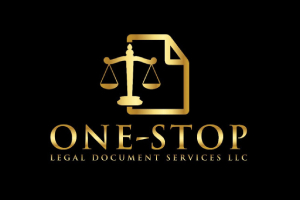Preserving Your Legacy: Navigating the Legal Terrain of Estate Planning
Introduction:
In the realm of personal finance and family legacy, safeguarding one’s assets and ensuring the seamless transition of wealth is a responsibility that cannot be overlooked. Estate planning, a critical facet of personal well-being, encompasses a range of legal documents that provide individuals with control over their affairs, even in times of incapacity or upon their passing. In this paper, we undertake an exploration of the key pillars of estate planning, shedding light on the essential components that underpin the preservation and distribution of your hard-earned assets—namely, last will and testament, living will, power of attorney, trust agreement, beneficiary designation forms, and healthcare proxy.
In a world characterized by uncertainty and complexity, the importance of strategic planning for one’s estate cannot be overstated. By acquainting ourselves with the legal instruments that govern this realm, we can safeguard our interests, provide for loved ones, and ensure our wishes are honored, even in circumstances beyond our control.
1. Last Will and Testament:
The last will and testament, often regarded as the cornerstone of estate planning, allows individuals to express their final wishes, appoint executors, and designate beneficiaries. This critical legal document ensures that your assets are distributed in accordance with your desires, while also minimizing potential disputes and avoiding ambiguity. Understanding the intricacies of drafting a comprehensive will is essential to preserving your legacy and providing for your loved ones after you are gone.
2. Living Will:
In times of medical uncertainty or unforeseen health crises, a living will act as a guiding compass, enabling individuals to express their wishes regarding end-of-life healthcare decisions. This legally binding document communicates preferences regarding life-sustaining treatments, alleviating emotional burdens for loved ones, and offering peace of mind that one’s values and beliefs will be respected.
3. Power of Attorney:
Granting someone the power of attorney empowers them to act on your behalf in financial or legal matters. Whether related to managing investments, making healthcare decisions, or handling property transactions, a power of attorney document ensures a trusted individual can step in to manage your affairs should you become incapacitated. Understanding the responsibilities and limitations of the power of attorney is essential in ensuring that your interests are diligently protected.
4. Trust Agreement:
A trust agreement serves as a powerful tool for managing and protecting assets while providing for the financial security of beneficiaries. By establishing a trust, individuals can ensure efficient transfer of wealth, mitigate estate taxes and even dictate the disbursement of funds according to specific conditions or timelines. Familiarity with the different types of trusts and the processes involved is crucial to maximizing the advantages of this legal instrument and preserving your estate for generations to come.
5. Beneficiary Designation Form:
Certain assets, such as life insurance policies, retirement accounts, and bank accounts, allow individuals to designate beneficiaries directly, bypassing probate and facilitating swift transfer of ownership. Understanding the implications of beneficiary designation forms, including primary and secondary designations, is essential to ensure that your assets are distributed according to your intentions.
6. Healthcare Proxy:
Appointing a healthcare proxy grants authority to an individual selected by you to make medical decisions on your behalf when you are unable to do so. This ensures that your preferences and values are respected during critical medical situations. Familiarity with the healthcare proxy document and selecting a trusted individual who can advocate for your wishes is paramount in maintaining your autonomy and medical decision-making rights.
By embarking on the estate planning journey armed with knowledge about these essential legal documents, we can proactively shape our legacy, provide for loved ones, and alleviate burdens for those left behind. Through this exploration, we endeavor to offer guidance and insights, empowering you to secure your assets, protect your interests, and leave a lasting impact that reflects your values and aspirations.


